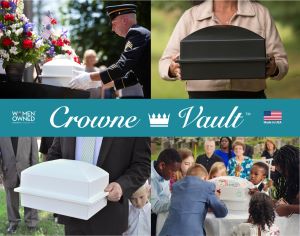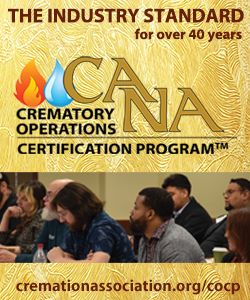Interment eligibility case playing out at Punchbowl National Cemetery of the Pacific

There is an interesting case, which you can read about and see a news video of here, blowing through the tradewinds of Hawaii at this time concerning the eligibility of burial in a Veterans’ Administration National Cemetery. The case concerns the potential of a dis-interment of U.S. Army veteran and Honorably Discharged Dr. Robert Browne who has been buried in Honolulu’s Punchbowl National Cemetery of the Pacific since 1991.
The case has prompted a letter from the Hawaii congressional delegation, including United States Senator Mazie Hirono to the secretary of the United States Department of Veterans Affair “requesting legislation allowing the VA to review and initiate disinterment proceedings for Dr. Brown”.
From the article that I read it appears that the disinterment stems from a person who “identifies as a survivor of sexual abuse by Browne and has family members buried at the Honolulu cemetery”.
Of interest in this situation is the fact that Dr. Browne died before he was ever charged with the crimes but the Kamehameha Schools of Hawaii paid a settlement of $80 million to (his alleged) victims. Another factor in the case against Dr. Browne is that his death was ruled a suicide.
The letter to the secretary of the U.S. Department of Veterans Affairs makes this statement according to the article from Hawaii News Now, “The presence of an alleged serial abuser in a place reserved for those who served with distinction is deeply painful and unacceptable to survivors and the families of those buried alongside him.”
Funeral Director Daily take: I think that this is a very complicated case under the current rules of VA cemetery eligibility. In general, here are the simple requirements for burial eligibility in a VA national cemetery:
Veterans, service members, spouses, and dependents may be eligible for burial in a VA national cemetery, as well as other benefits, if they meet one of these requirements.
One of these must be true:
- The person qualifying for burial benefits is a Veteran who didn’t receive a dishonorable discharge, or
- The person qualifying for burial benefits is a service member who died while on active duty, active duty for training, or inactive duty for training, or
- The person qualifying for burial benefits is the spouse or surviving spouse of a Veteran (even if they remarried after the Veteran’s death), or
- The person qualifying for burial benefits is the minor child of a Veteran (even if the Veteran died first) or, in some cases, the unmarried adult dependent child of a Veteran
Certainly Dr. Browne qualifies under the first criteria. But, as I continued to look at criteria for exemptions to those requirements there are possible exemptions that could, in my opinion, make Dr. Browne ineligible. However, they seem a little bit in the areas of gray when it comes to this situation.
A couple of those exeptions include the following:
Veterans aren’t eligible if:
-
They’ve been convicted of a federal or state capital crime and may receive a sentence of imprisonment for life or the death penalty—and the conviction is final, or
-
Clear and convincing evidence shows that they’ve committed a federal or state capital crime, but they couldn’t have a trial due to flight to avoid prosecution or death
-
They were convicted of a Tier III sex offense and sentenced to a minimum of life imprisonment—and the conviction is final.
My next cause of action was to look up “Capital Crime” and it is defined as “A capital crime, also known as a capital offense, is a crime that is punishable by the death penalty. These crimes are considered the most serious offenses under the law and vary by jurisdiction, but often include aggravated forms of murder, treason, and terrorism”.
So, if that definition is true, then Capital Crime does not seem to fit this situation as reason for disinterment nor does the conviction of a sex offense because Dr. Brown died before he was charged and/or convicted.
I want you to know that I’m not taking a side here but I do find there to be interesting arguments on each side. It will be interesting to see how the situation plays out.

Tom Anderson
Funeral Director Daily
Final Thought — For the first time in my life I was called to jury duty this summer and was selected to a jury for a short trial. I will say that when I found myself in the jury box for the beginning of the trial I felt the huge weight of justice on my shoulders. I’m relieved that the case did not have repercussions of prison time — it was a simple case of a defendent accused of violating a restraining order against loud noise in an apartment complex.
Even though the case seemed fairly straight forward and simple, I was struck by how emotionally drained I was after listening to the case and deliberating with fellow jurors. It was an interesting lesson for me to learn about the responsibilities of a “jury of your peers” in the American justice system.
I’m certainly glad that I will not be sitting in and trying to figure out the justice in this Hawaii case.
Related Article — “Eligibility for Burial in a VA National Cemetery”. U.S. Department of Veteran Affairs
More news from the world of Death Care:
- Greco presents Dodd Award. The Herald-Star (OH)
- Reinventing reality: Holograms are moving from stage to funeral halls to museums. Financial Express Leisure
- Shudder acquires adaptation of hit game “The Mortuary Assistant”. HorrorFuel.com
- Goats in the graveyard: Historic Fairview Cemetery’s helping hooves. Yahonn News from KRQE – Albuquerque (NM)
- Illinois Department of Insurance announces distribution of $18 million to Illinois Funeral Directors. Illinois.gov (IL)
Enter your e-mail below to join the 3,194 others who receive Funeral Director Daily articles daily:
“A servant’s attitude guided by Christ leads to a significant life”





















Thanks 👍👍😊 for information it’s was interesting how we have lost the respect for the Dead…